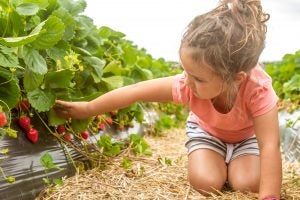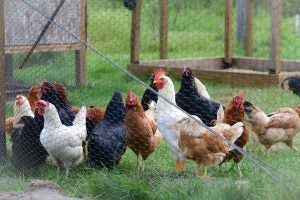I live on a “farmette.” While many of us have heard the term “farmette” before and may even have some preconceptions about farmettes, I want to say that — big or small, full-time or part-time — there’s value to anyone who actively contributes to our food system.
So to know how they contribute to our system, we are going to explore:
What is a farmette?
Think about anything else that has the word “ette” after it. Smaller? Cuter? Like kitchenette, Smurfette? A farmette is basically a smaller-scale farm — and is sometimes used interchangeably with “hobby farm.” It could be as small as an acre or it could be closer to 10 acres (though some definitions put the acreage significantly higher). The U.S. Department of Agriculture refers to anything under 10 acres as “small acreage farming,” while companies such as Syngenta have used 5 acres as a general cutoff when defining a “smaller farm.”
Most people do try to make money on these kinds of properties — specialty crops like garlic or u-pick strawberries are popular approaches — but they may primarily have a job off the farm. Part of the reason an acreage definition is so hard to pin down is that there’s a lot you can do with 5 to 10 acres of produce and a lot of value you can get out of that, but if you want to grow a commodity like corn or soybeans with just that much land, well, sometimes it hardly will seem worth it.
One dictionary definition of a farmette is:
“A farmette is a small residential farm run by an owner who earns income from a source other than the farm. It is sometimes known as a yokelet or a farmlet. Farmette owners are typically city workers who want to own rural land without operating a full farm. A farmette often includes a large vegetable garden, the occasional barn, tractor, and even farm or domestic animals, such as goats and cats. Farmetters usually rely on their tractor to plow or snow blow their driveways during the winter. Farmettes are usually around 50 acres. They can have a small hog pen, a few chickens in a chicken coop or a kennel house for dogs.”

It’s also not uncommon for these smaller farm properties to have more trees scattered around them than many production farms have, as well as having older barn structures. Oftentimes, they fit the public perception of that “romanticized” view of agriculture and rural life.
So as more people have been curious to know where their food comes from or fed up with their city-living, fast-paced, traffic-laden lifestyle, more and more people are turning on to craving a more simple lifestyle. Why not a hobby farm?
How to make money on a farmette?
It’s amazing how on-farm profitability may vary. Larger scale commodity farms may have tough years and be upside down financially if market prices are down; or the opposite can happen and they can be quite profitable. They generally don’t have much control over market price.
So the difference in having a farmette is that the farmers tend to have more control over what they charge for their goods. They’re not beholden to the markets and large-scale distribution that production farmers would be. If “farmette” farmers have a couple acres of fruits and vegetables, there’s a good chance they’re selling direct to consumers or restaurants and/or have a roadside stand or booth at your local farmers’ market.

To be successful at smaller scale farming, you really have to have good oversight into overhead costs. Think about what you’re growing, what is in season? How will you maintain regular customers and what about the off-season? Will you also sell eggs or meat, which could bring in a more diverse, steady supply? Some people make the mistake of going all in with very expensive equipment and infrastructure, only to realize that farming is a lot harder than it looks. Or they forget about other expenses such as permitting, insurance, and other regulatory hurdles.
It’s best to start small and make sure it’s right for you; see how local customers react before diving in over your head.
Farmers do it because they love it.
This is a statement we hear all too often — true words are spoken here! Maybe you aren’t looking to sell goods but just have a farmette because you love the connection to the land, the chores, and the responsibilities that go along with it. These are also great values to instill in your children! The horses need water, grains, and hay. The weeds need to be pulled or sprayed. There’s something to be said for the immediacy of farm fresh eggs or hearing the rooster crow during your morning coffee routine.

So, maybe you just take interest in having a farmette for the beauty in it. Nothing wrong with that! Even if you don’t do it for the money, working with soil and animals every day can be an incredibly rewarding or fun and challenging hobby.
Michelle Miller, the Farm Babe, is a farmer, public speaker and writer who has worked for years with row crops, beef cattle, and sheep. She believes education is key in bridging the gap between farmers and consumers.



